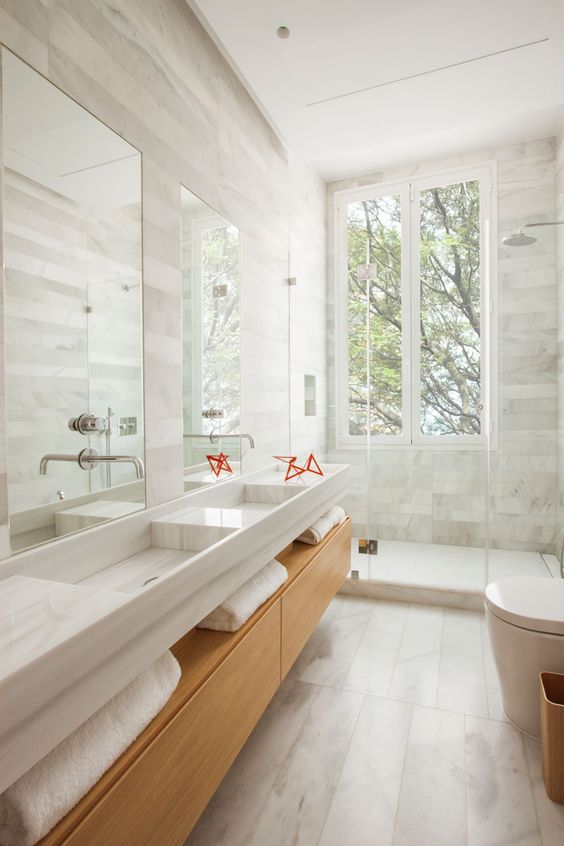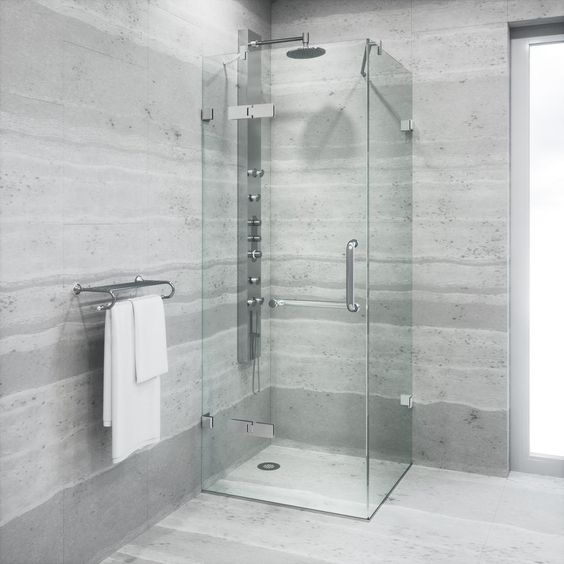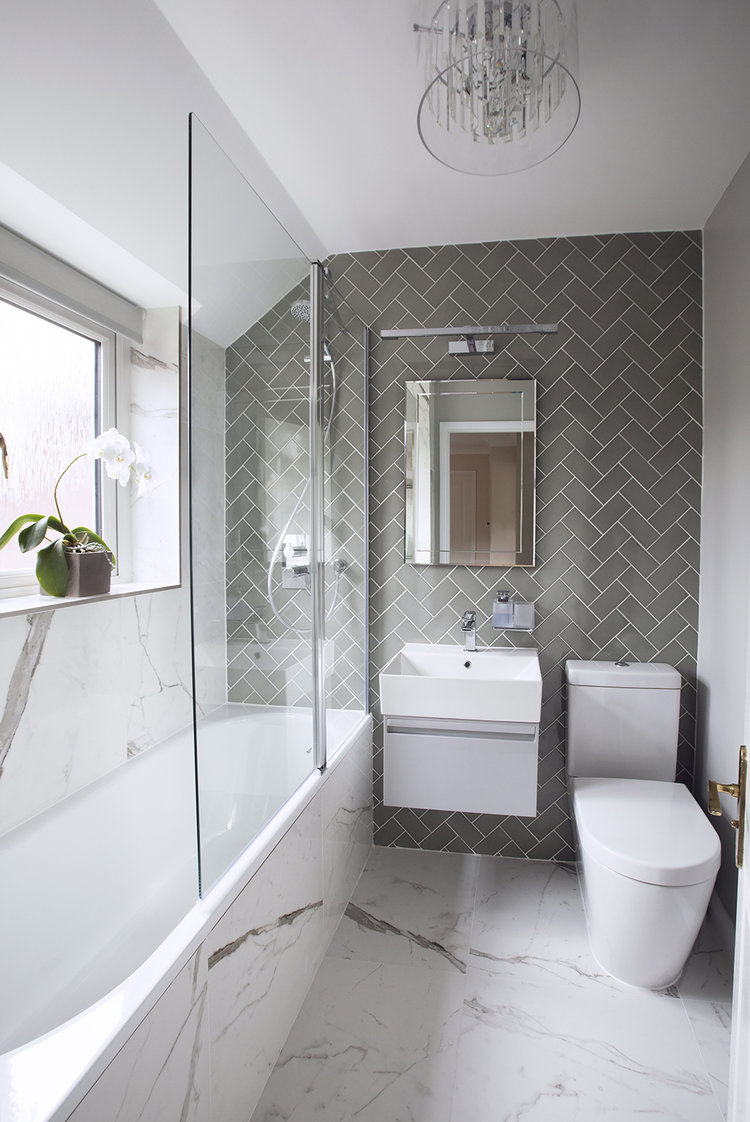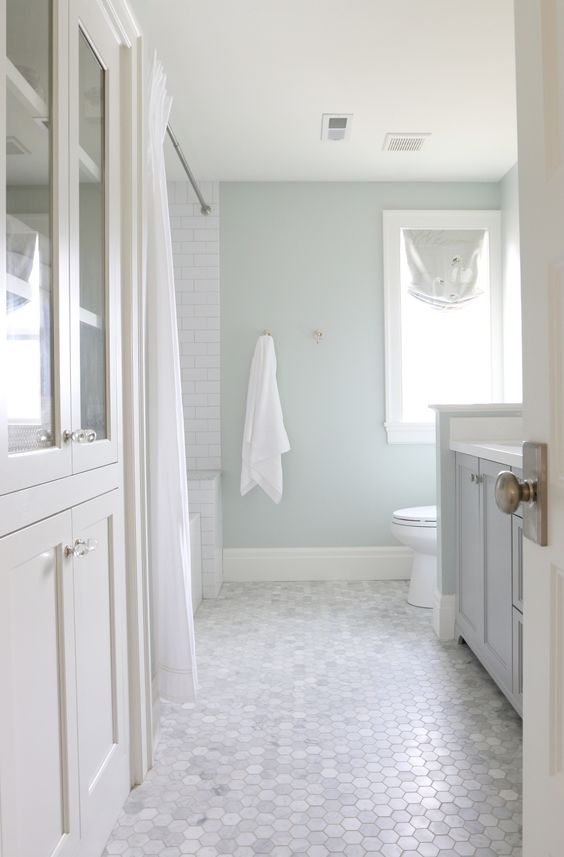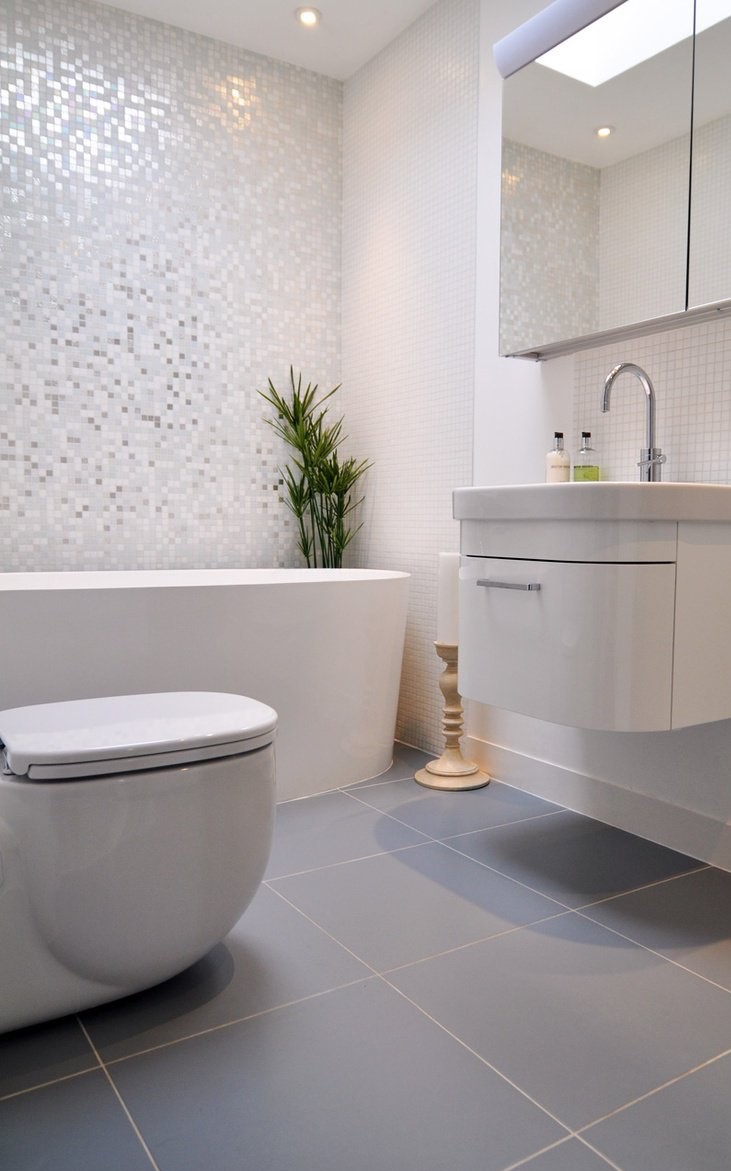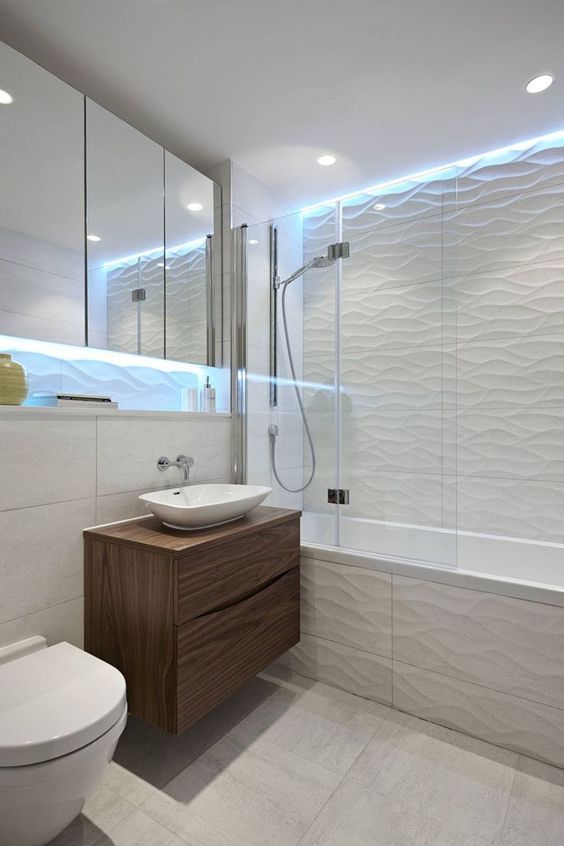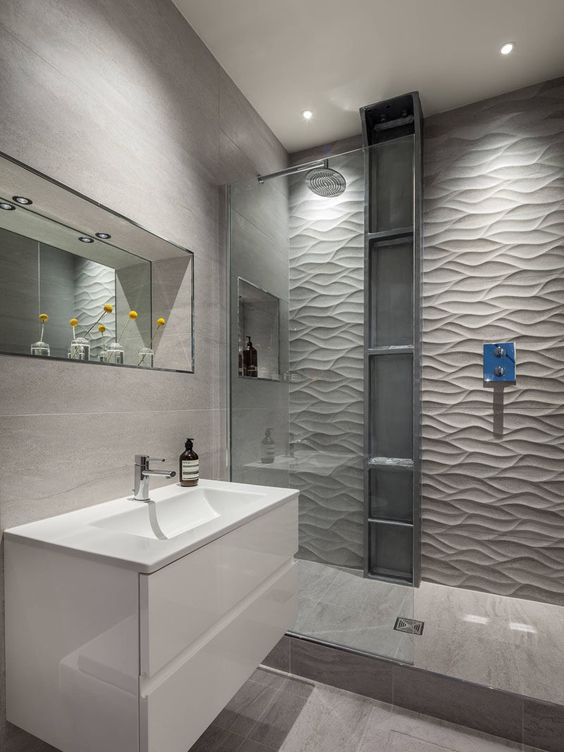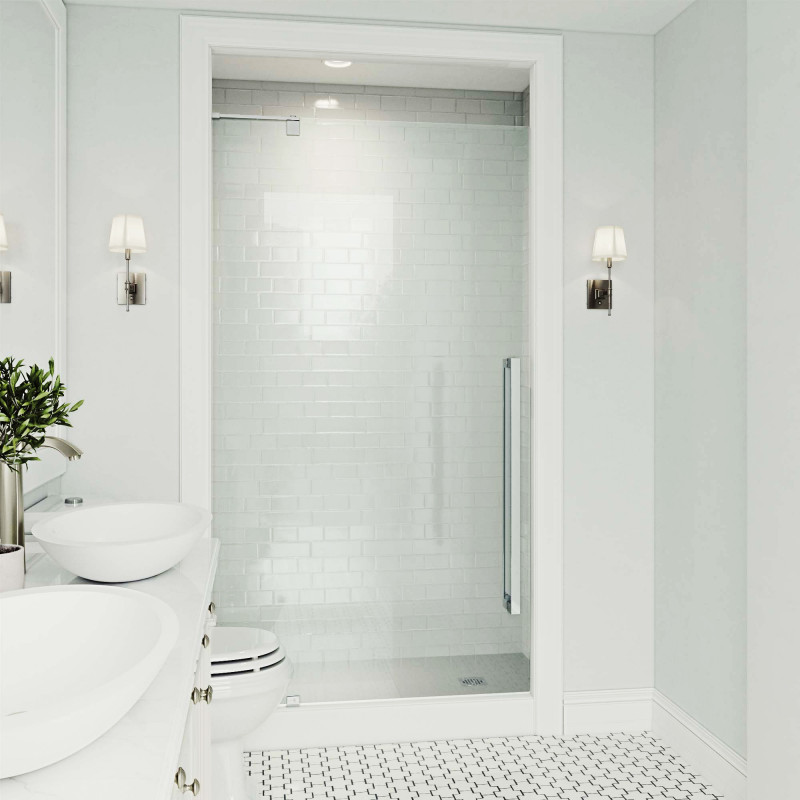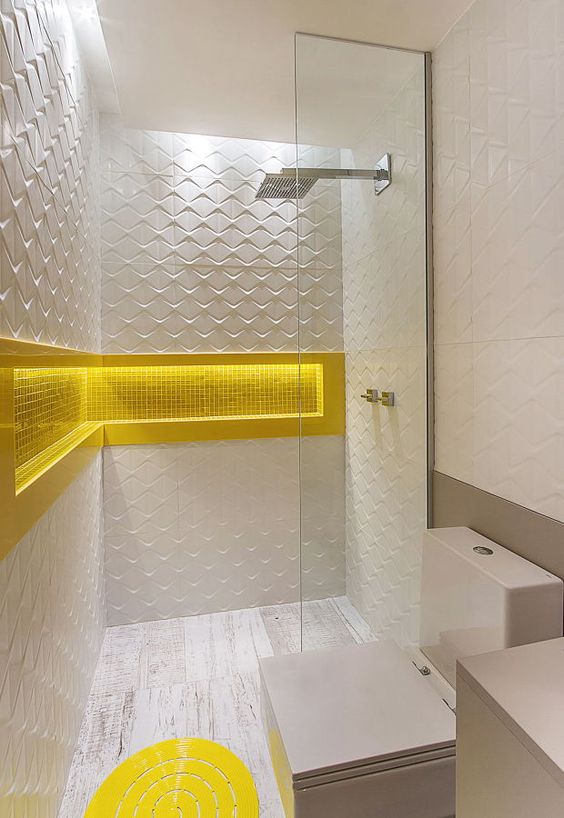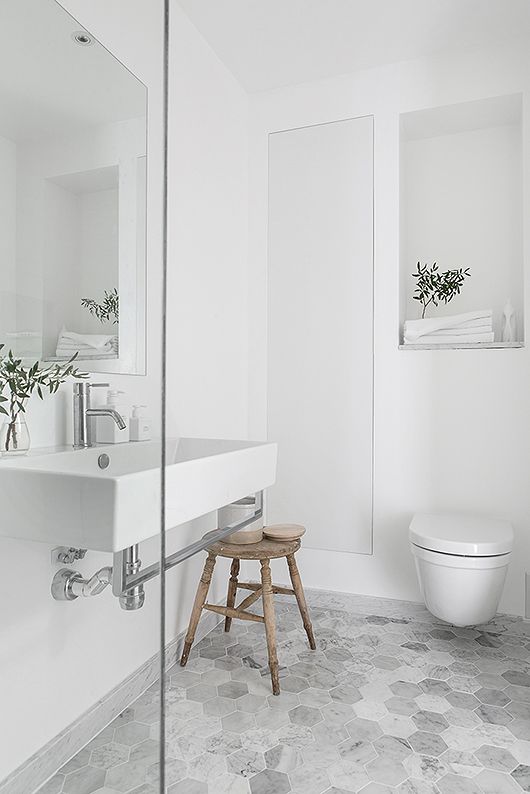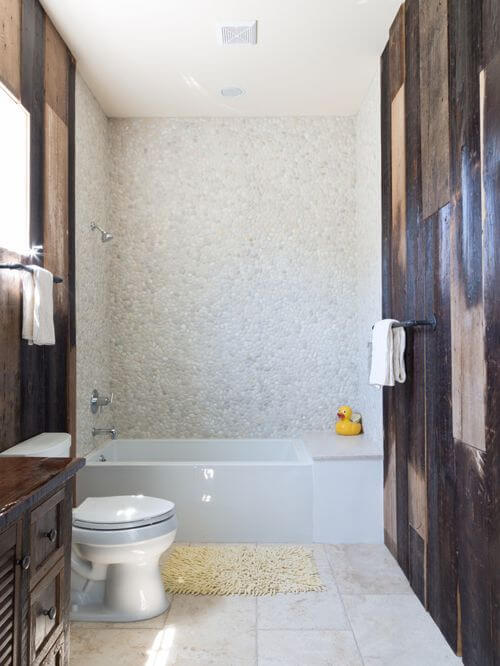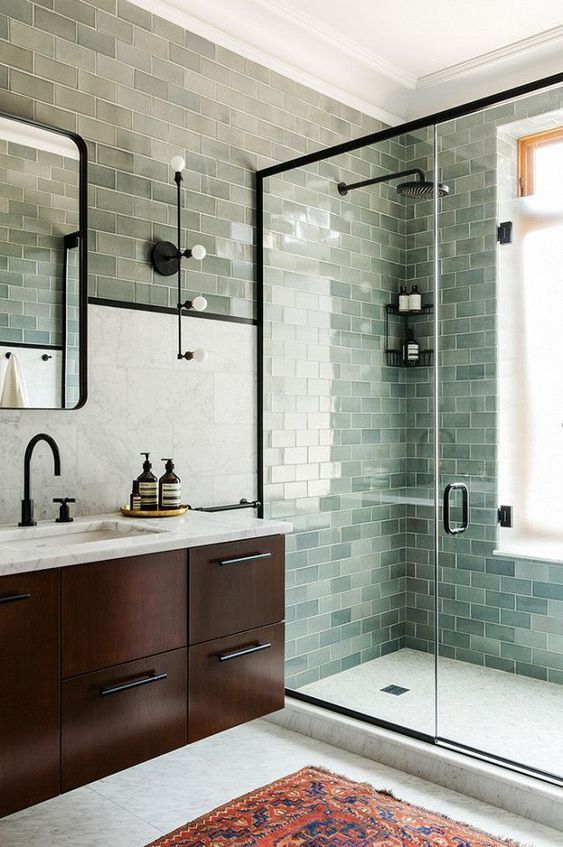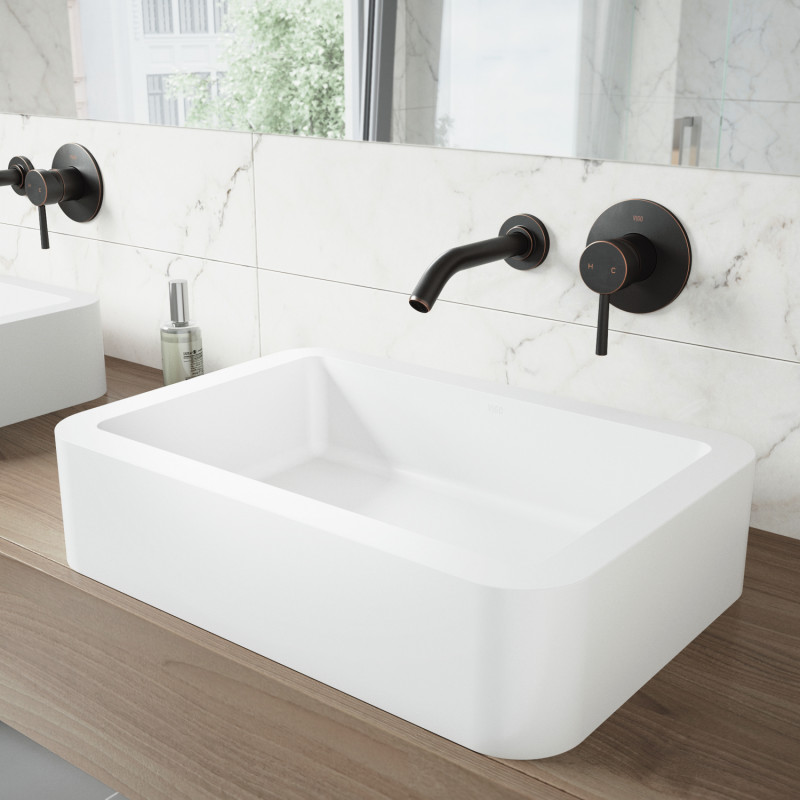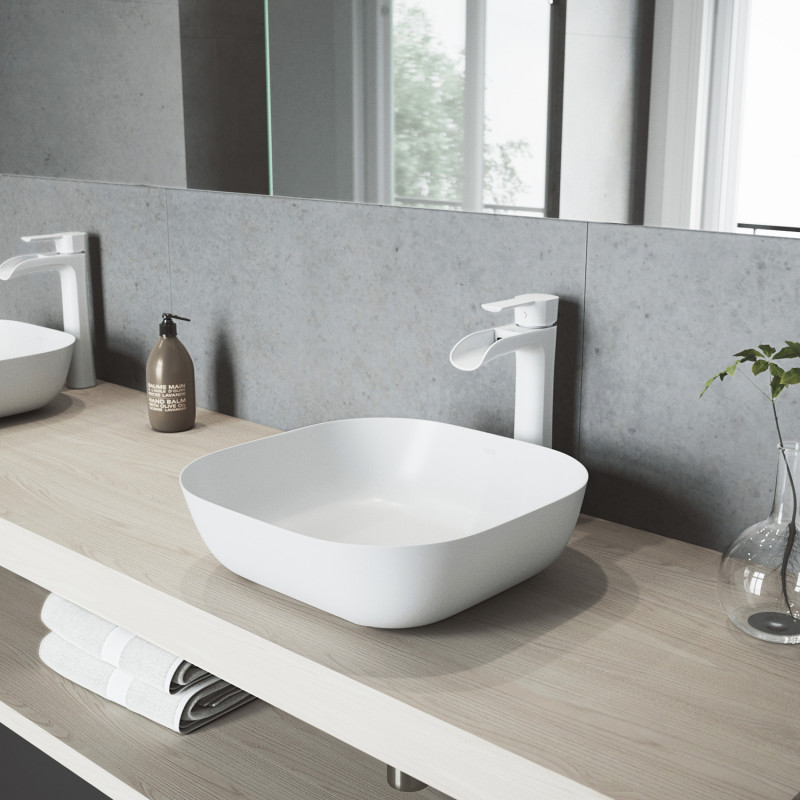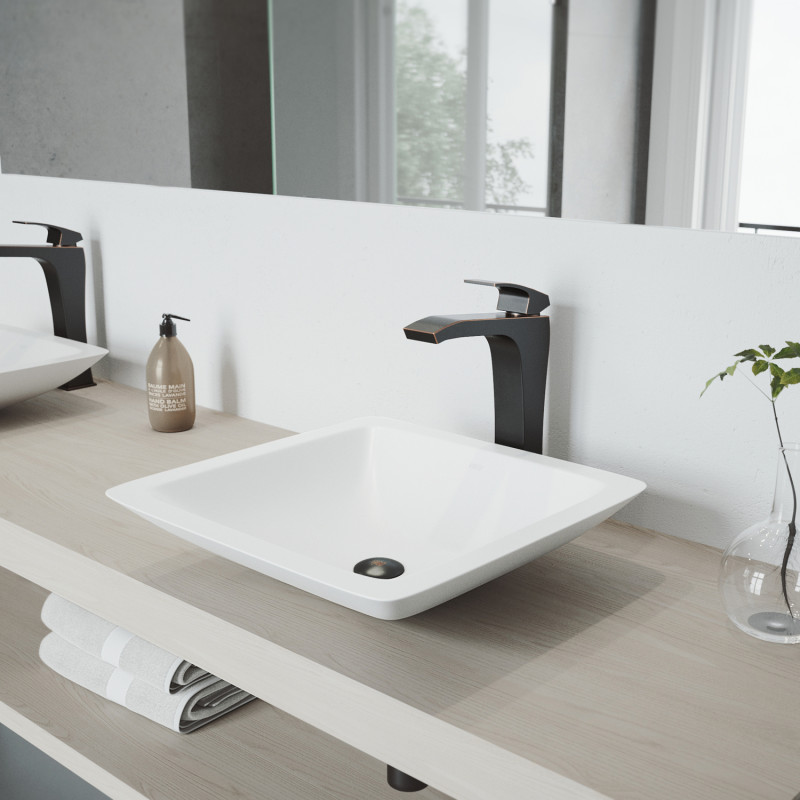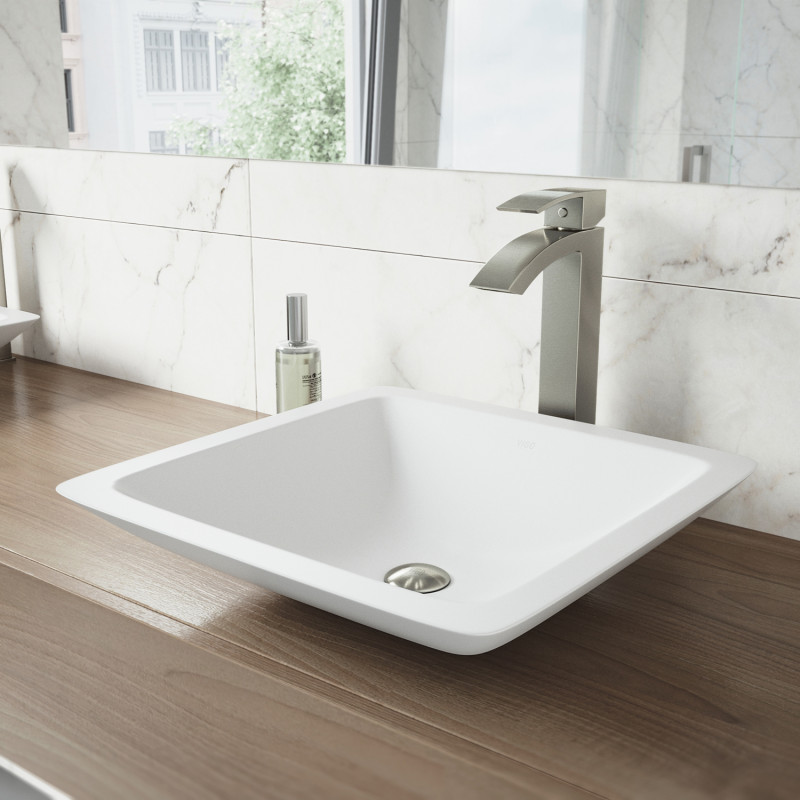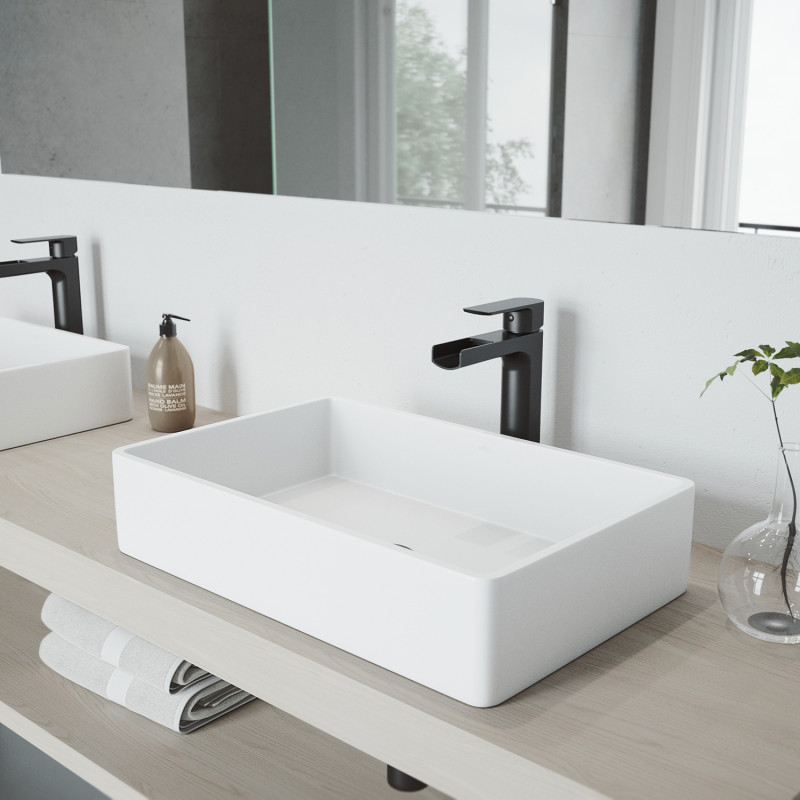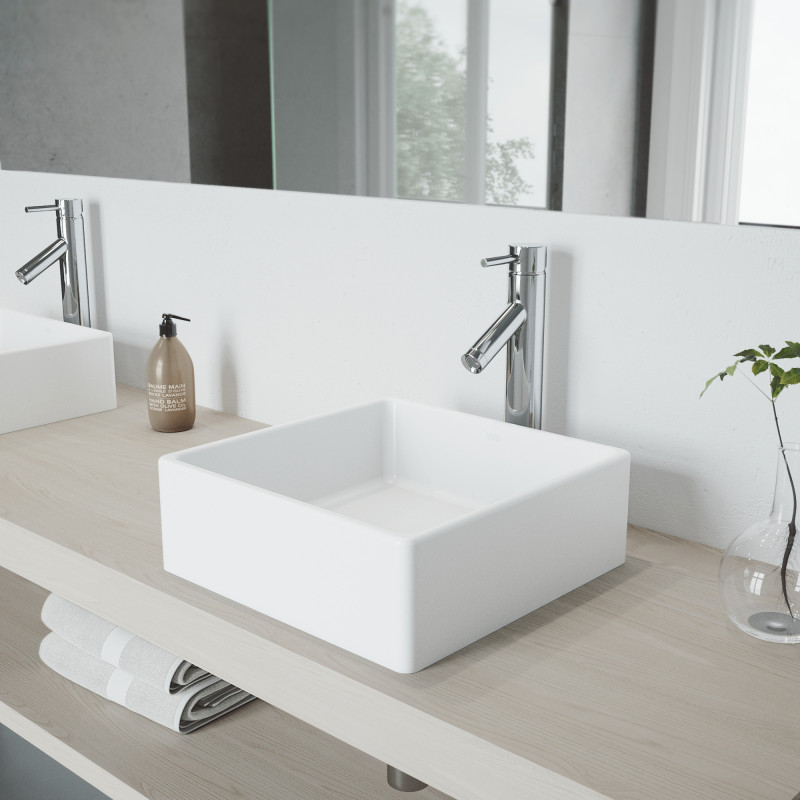CHOOSING BATHROOM TILES
Choosing bathroom tiles presents a similar dilemma to choosing a wall color for a gender neutral room. There are so many things to consider, from choosing a tile to match the decor to making sure the tile color works well with the size, light and, of course, users of the bathroom. So here’s our cheat sheet on circumventing all the headaches that may befall you as you begin your search for the perfect tile design scheme.
Types of materials
Ceramic tiles:
Ceramic or non-porcelain tiles are ideal tile surfaces for bathrooms and other moisture-prone areas. These tiles generally have a high water absorption rate making the surface impervious to water penetration that often leads to stains! Ceramic tiles are one of the longest lasting products on the market today.
Stone tiles:
The most common natural stone tiles are: marble, limestone, slate and granite. The beauty of natural stone’s unique pattern varies from tile to tile, so keep in mind that no two natural stone tile surfaces will be the same. NOTE: It is important to avoid bleaches or harsh chemicals on natural stone as they are inclined to eat at the surface.
Marble tiles
An instant classic and epitome of sophistication, marble is always an excellent choice for bathroom decor. It's timeless, adds to the value of your property, and is, of course, easy on the eyes.
There is one downside to marble: it comes with a bit of maintenance. Marble must be sealed yearly and cleaned regularly to avoid stains, scratches and moisture damage. But if you can handle the work, the results are worth it: an elegant bathroom that will stand the test of time.
Porcelain tiles:
Porcelain tiles, just as elegant as marble, are favored for their strength and adaptability allows endless ideas for interior and exterior applications. Porcelain floor tiles are a wonderful choice for areas with a lot of wear and tear in high traffic areas from families to pets. Porcelain is also resistant to stains, scratches and is to maintain.
Mosaic tiles:
Mosaic tiles are an easy way to add originality to your bathroom. However, be wary about the slip rating standards and the warranty. Glass mosaic tiles are pretty easy to maintain and clean but remember the more grout lines you have, the more cleaning is involved!
3D Tiles
3D wall tiles are for the more adventurous of bathroom designers. They can be arranged in endless combinations to create remarkable patterns unique to a space. They’re also an excellent way to add texture to the space and a creative alternative to the traditional 2 dimensional tiles typically found in bathrooms.
2. Size of the tile
Bathroom size should NOT reflect on the size and shape of the tile. For example, a smaller space can actually benefit from a larger tile. With fewer grout lines the walls and floor are less cluttered, which visually expands the room.
One exception to this may be mosaics; this is not because they are small in size, but because the grout lines which can give the bathroom walls a grid-like appearance. This may cause the space to feel boxed in. This doesn’t mean you can’t use mosaics. To combat this, simply combine them with a larger tile creating an interesting texture.
3. Tile colors
To create the illusion of a larger space aim for using lighter hues. Light tones naturally enhance any space, no matter how big or amount of light source there may be. NOTE: If you’re selecting grout colors, make sure the grout does not contrast too sharply with the tile.
Adding contrast is an excellent way to enhance a bathroom space. Black tiles, for example, easily create a sophisticated space when combined with lighter toned walls or decor. NOTE: Black tiles tend to be a nightmare when it comes to maintenance! Because its so dark in hue, everything will be visible, from dust to shampoo droppings. So long as you’re ok with mopping every day, then black tiles are no doubt an asset to your modern bathroom space.
4. Combining Tile Types
When selecting your own tiles, try and limit yourself to no more than three different tiles. Especially in smaller spaces, too many tile types, colors, and sizes will seem overwhelming. Often using one single tile begs for a little bit of variety through an accent tile with a different size, finish, or color.
5. Laying Tiles
Laying your bathroom floor tiles horizontally will create the illusion of width making the space feel more open. Any rectangular tile will accentuate the space because your eyes are drawn to the horizontal lines making space appear wider and longer that it really is.
Tiles placed in a diagonal pattern can actually give the illusion of a larger room. Believe it or not, you may be able to tile your bathroom floor without tearing it up.
Pictures sourced from Pinterest and VIGO Industries.
While choosing a bathroom tile, don't forget to choose bathroom sink and faucet! Here there are the most popular bathroom sinks and faucets ideas for your modern bathroom! Contact our VIGO Industries team, we would love to help!

